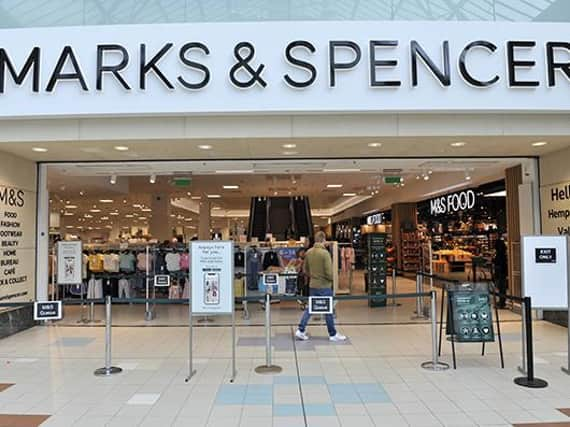New clothes are out of fashion and that has hit M&S - Ros Snowdon


M&S’s reaction was to say the firm’s performance was much more robust than at first seemed possible.
With so many of us working from home whilst others face redundancy, fashion has become a frippery that people no longer have time for.
Advertisement
Hide AdAdvertisement
Hide AdThose of us working from home favour comfort over stylishness and are turning to favourite garments that have stood the test of time. The thousands of people who face an uncertain future, with their jobs in doubt, are focusing on getting through the next few months rather than what they’re wearing.
The festive season is traditionally a peak time for fashion retailers as people plan their Christmas party attire, but as we go into the second national lockdown today, few of us are confident that festive events will take place this year.
M&S said clothing sales were hit hard by the enforced store closures amid the pandemic.
The high street giant fell to a £88m pre-tax loss for the 26 weeks to September 26, swinging from a £159m profit in the same period last year.
Advertisement
Hide AdAdvertisement
Hide AdThe clothing and home division saw sales dive 41 per cent over the half year, despite the reopening of stores and strong online sales growth.
Richard Hunter, head of markets at interactive investor, described M&S’s clothing and home business as the thorn in its side and said it remains under severe pressure.
He blamed a combination of fashion lines that are seen as unfashionable, especially to younger customers, exacerbated by the lockdown and subsequent impact of the closure of stores.
Mr Hunter said there is little doubt that a reorganisation of the company and, to some extent the brand, is long overdue. He said that whether the speed of this transformation is too little, too late remains to be seen, but M&S is making every effort to stem what has been a slow decline over recent years.
Advertisement
Hide AdAdvertisement
Hide AdSusannah Streeter, senior investment and markets analyst at Hargreaves Lansdown, said that food once again took the crown at M&S, providing cheer in what otherwise has been a set of disappointing results.
She said the pandemic has hit the retailer where it hurts, with clothing and homeware sales at its city centre stores still struggling, even after lockdown ended.
However, she said it could have been worse, with the group’s performance buoyed by a hearty appetite for its grocery ranges, adding that the new partnership with Ocado, while costly to set up, finally means M&S can compete on home deliveries, which should bode well during lockdown mark 2.
Ms Streeter said clothing continues to struggle, but the retailer aims to drive an “express train of transformation” through its ranges by creating a new digital division “MS2”.
Advertisement
Hide AdAdvertisement
Hide AdThe plan is to create product lines to grab social media attention and drive shoppers to online, where M&S has historically struggled to keep up with the competition.
Ms Streeter pointed out that M&S clothing rebrands have been and gone before and bosses will have to work very hard to ensure this time around the new styles really do stand out from the fashion pack.
Analyst Clive Black at Shore Capital said he expects the four-week November lockdown to result in M&S’s offline clothing and homes sales falling by £100m to £140m, but there is a wide margin of error to this figure, whilst any sales and margin impact is likely to be mitigated by online sales and ongoing cost reductions.
After the four-week lockdown, he said that M&S will have to go straight into Christmas and Brexit, which are key matters for the management team.
Advertisement
Hide AdAdvertisement
Hide AdIn times of such uncertainty, it is easy to forget that the Government has less than two months to secure a Brexit deal with the EU.
Retailers have no idea what they will be dealing with come January 1.